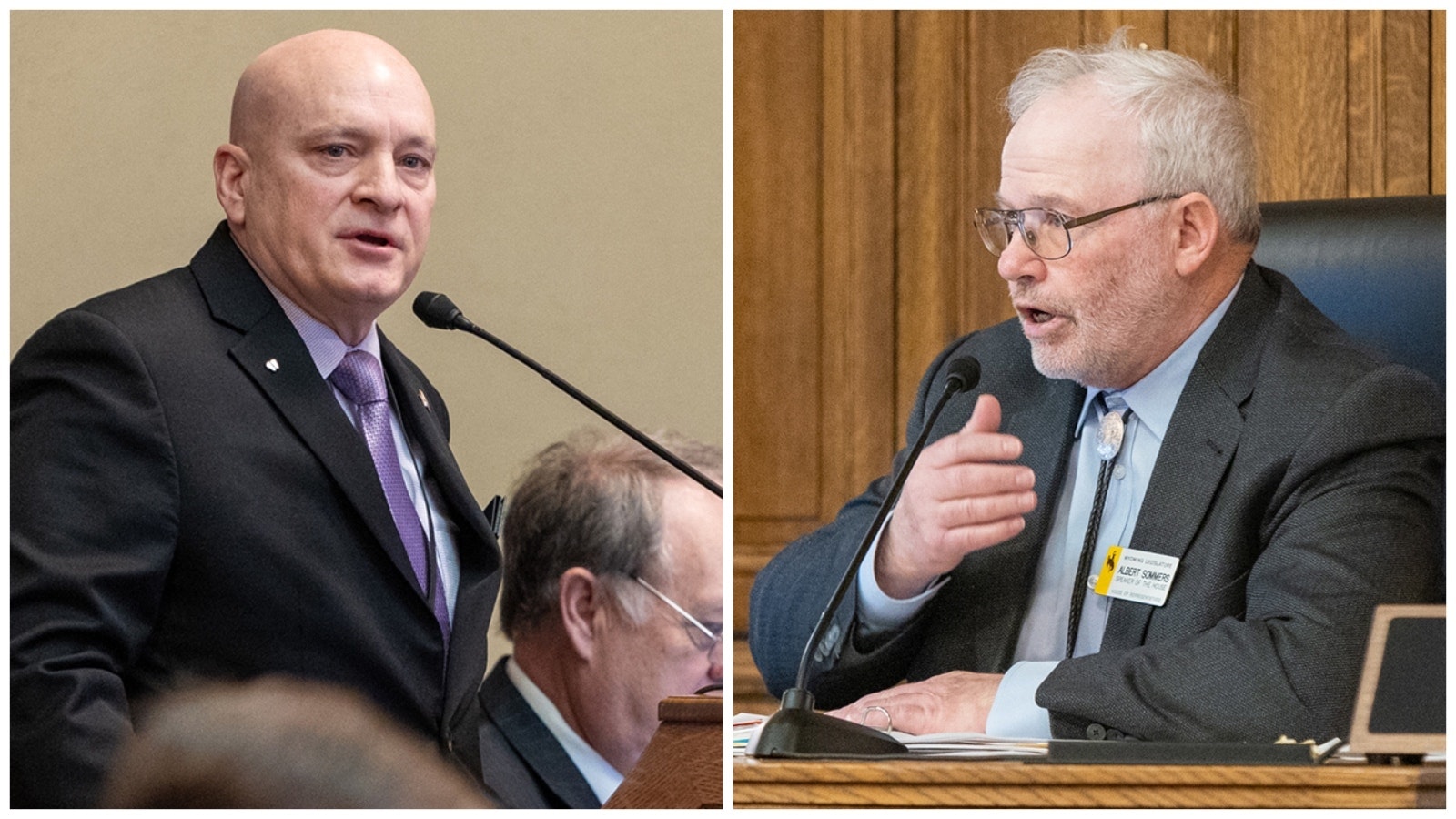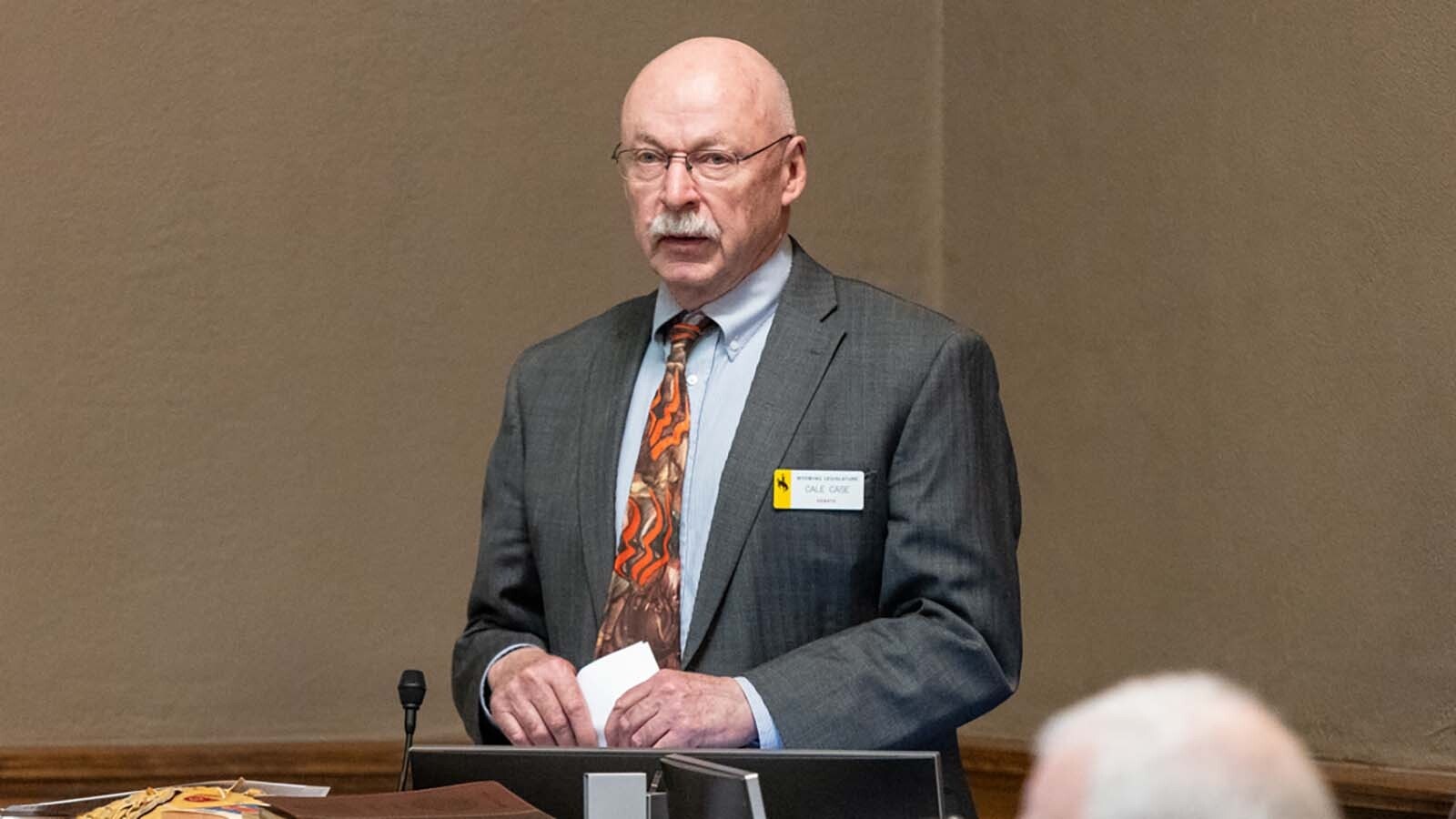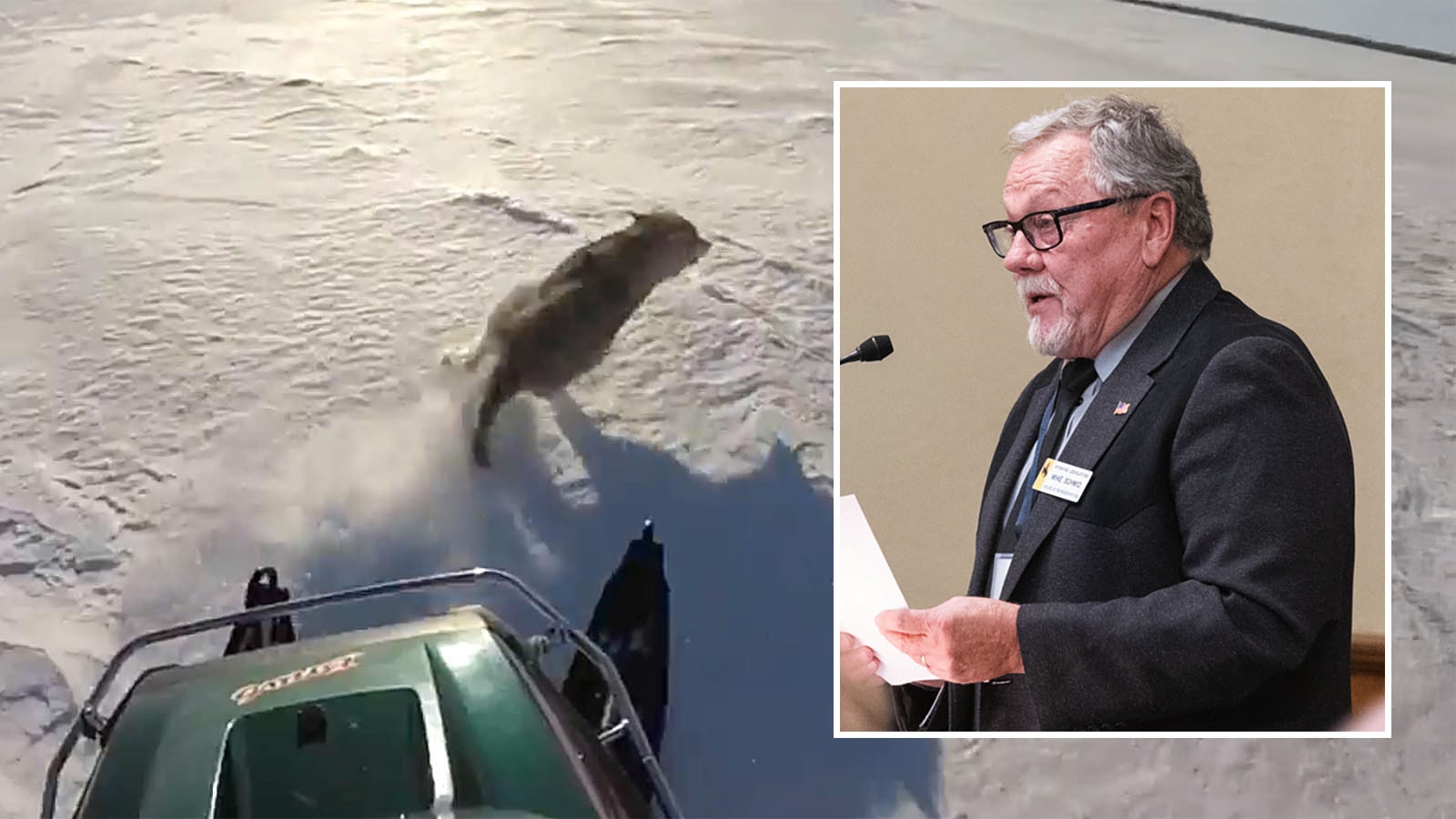The first day of the Wyoming Legislature on Monday was highlighted by welcome back speeches, standing ovations and the killing of 13 committee bills.
The sheer number of committee bills defeated on introduction, some remarked, was unprecedented in the history of the Legislature.
"That's a lot of committee bills to die on the first day," House Speaker Rep. Albert Sommers, R-Pinedale, told Cowboy State Daily.
How It Works
Committee bills typically go through multiple revisions and undergo serious scrutiny during the interim session before ever advancing to the legislative session. Legislators on the dozen joint interim committees, made up of members of both the Senate and House, typically don’t put forward a committee-sponsored bill without multiple meetings with discussion and public input on the topic it covers.
During the 2023 interim session, Sommers said more than $679,704 of state money was spent conducting and staffing the committee meetings.
“That doesn't mean that every bill that comes out is good, that doesn't mean every bill should go to introduction,” Sommers said on the House floor. “But the vast vast majority of committee bills should be introduced.”
On Monday, 34% of the committee bills introduced in the House failed introduction.
How It Went
To have a non-budget bill introduced during a budget session, a two-thirds majority is required, which creates a 42-vote hurdle.
Almost all of the bills that failed to receive introduction Monday were defeated by only a handful of votes, and some by as few as one. It was by all accounts a victory for the Wyoming Freedom Caucus, whose members voted against most of the defeated bills.
Rep. John Bear, R-Gillette, chairman of the Freedom Caucus, saw the bills not being introduced as a win for fiscal conservatism, touting it as a successful effort to save the state around $250 million.
“This action was an illustration of the growing movement to both curb state government spending and bring government policy more in line with conservative values,” Bear said.
Defeated for introduction by one vote was House Bill 19, legislation brought by the Joint Education Committee and Sommers that would have established the use of income-based educational savings accounts (ESA) for parents to use towards their kids’ early childhood education and non-public K-12 programs.
During a Monday press call, Sommers said he proposed the bill both as a form of compromise with legislators who brought a different ESA bill he opposed last year, and a new understanding for how ESAs work.

Double Take
What Rep. Landon Brown, R-Cheyenne, said he found particularly frustrating were the actions of three of his committee members who voted against introducing the same, unchanged bills that they had voted for earlier in committee.
“They’re directed by their national organization to not vote for them, so that’s a pretty clear indication to the way things are being run here,” Brown said. “It’s the most I’ve ever seen killed on the floor.”
Sommers said this piece was what bothered him most and that those who voted for committee bills during the interim session had an obligation to allow those bills to be heard before the House. He said those who changed their votes had a duty to inform their committee chairmen if they’re not going to vote for a committee bill on the floor if they supported it before.
“I think that violates the basic trust that we’ve had in this Legislature for a long time,” Sommers said.
Brown also was irritated that House Bill 135 didn’t receive introduction, which would have provided $185 million for state-funded capital construction projects.
“It’s not going in there anymore,” Brown said. “Hundreds of millions of dollars for our local towns and counties.”
Rep. Jeremy Haroldson, R-Wheatland, a member of the Freedom Caucus, sees it differently.
“Bad bills are bad bills, and this is an opportunity to not waste time on a bill that doesn’t have the ability or is not ready for the primetime,” Haroldson said. “That’s a great way to weed it out. We only have 20 days, and this is a way we can keep our bills down to a place where we actually decide bills that we can bring across the finish line.”
As far as breaking with historical precedent, he said people should get used to it.
“There’s going to be a lot of unprecedented things in the future,” he said.
Rep. Steve Harshman, R-Casper, said the number of bills defeated Monday was unprecedented, but he blames the two-thirds rule, which dates back to a 1971 change to the Wyoming Constitution at a time when the Legislature only convened every other year and had no legislative staff.
“It was an obvious mistake to change our constitution,” Harshman said. “Western democratic republics do not favor supermajority votes. It makes our job as conservative problem solvers subject to the tyranny of the minority.”
Minority Floor Leader Rep. Mike Yin, D-Jackson, called the death of the 13 bills “a little offensive,” but also like Harshman blamed the two-thirds rule rather than any individual legislators.
“I don’t think that we can provide the proper consideration of whether something should or should not be introduced where we really don’t have a chance to debate the bill at all,” he said.

Things To Come
Majority Floor Leader Rep. Chip Neiman, R-Hulett, put out a plea Tuesday morning that the House work together and vote to introduce the eight property tax bills legislators considered Tuesday, despite the rash of bills being defeated the day before.
“The reality of it is the folks outside of this building are having a heck of a hard time,” he said. “As your majority floor leader I’m asking you, whatever your philosophical take on this is, I’m encouraging all of you to help support the introduction of these property tax bills. They need to get to committee.”
Rep. Lloyd Larsen, R-Lander, said he found this comment from Neiman “a little bit offensive” in that Neiman seemed to be giving a priority to property tax bills.
“I find it just a little bit offensive to think that now we’re going to take into consideration all the hard work that committees have done over the interim, the thousands of dollars that have been spent, the time away from work, and that we would consider these bills are now important, these committee bills are now important when the ones yesterday that were not,” he said.
Sommers said he normally wouldn’t allow personal comments like the ones Neiman and Larsen gave, but that doing so was a positive to allow the House to “heal after what happened yesterday.” He urged the representatives to make sacrifices on small differences of opinion for the greater good.
Six of the eight property tax bills passed on introduction.
Not Dead Yet
Rep. Bill Henderson, R-Cheyenne, took the high road about what happened Monday, saying that just because a bill was defeated initially doesn’t mean it’s dead entirely and can show up again in the form of a budget amendment, which only requires a simple majority vote for passage.
“There’s a lot of things at play here,” he said. “This is all a process and it’s not simple.”
Bear also sees this as a possibility.
“We fully expect many of the spending measures to return to the body for debate and vote prior to the end of the budget session,” Bear said. “What we hope for is a more focused effort to base spending on needs rather than wants.”
Leo Wolfson can be reached at leo@cowboystatedaily.com.





